Each year, Village Green sends a questionnaire to the candidates for South Orange-Maplewood Board of Education to answer. We post answers by question topic. Candidates are asked to answer as individuals, not as a slate. They are also asked to keep answers to no more than 500 words each. Here is the Q&A for all seven candidates on Board Governance and Administrative Accountability/Stability:
Recently, BOE President Dr. Qawi Telesford said that the board would make certain changes to how it functions, to be “a collaborative and productive partner working with district administration” with an emphasis on “improving student outcomes.” After a year of major turnover in top administrators, how do you see a board member’s role in terms of working with the Superintendent and administration? What do you believe are the one or two most important responsibilities a board member has? Finally, what are some of the most important and impactful actions the Superintendent and administration can take to improve student outcomes both academically and from a socio-emotional standpoint?

Bimal Kapadia
BIMAL KAPADIA:
Oversight. Honesty. Accountability. These are the most important aspects for the BOE.
When incumbents run for re-election, their record speaks louder than recent words. The BOE president has served for three years, including one year as president, and during that time, actions have often contradicted the message published in the Village Green. The community deserves transparency and a genuine spirit of collaboration, and it’s up to voters to decide whether that has been reflected in the board’s decisions.
For example:
- The current President and Vice President (running as incumbents) voted in to retain our former ineffective superintendent and business administrator, leading to a $9.5M shortfall.
- The incumbents supported a rushed policy to de-level the entire district and attempted to push it through, bypassing standard protocols and being touted as a “fully baked” policy.
- The incumbents voted for a budget that lacked transparency, cutting funding for the arts and eliminating 28 staff positions, including the Director of Guidance, without any analysis on student impact.
- The transportation problems were dismissed with the comment, “transportation is not a hardship.”
Additionally, there is ongoing division over the decision to hire an outside consultant for $42,000 to manage the CHS master schedule after firing the Director of Guidance — the incumbents have stated that all BOE members knew about this (even though some assure the public they did not) and have told the public they did not owe it to anyone to share this info since it fell under a “bid threshold” . The result has been a scheduling fiasco and the full financial impact remains unclear. And the impacts to students will be felt for years, particularly those with college prospects. The entire situation currently wreaks of flat out disingenuity, so it is hard to read that the BOE president is now calling for a change in how the board functions.
A board member’s role should center on oversight, honesty, and accountability—principles that cannot be compromised. I promise to bring that to the table when I am elected to the SOMSD BOE.
As it relates to improving student outcomes, the BOE, Superintendent and administration working collaboratively, should embark on a multi-tiered approach, centered on academic excellence, referenced in the earlier question on equity.
______
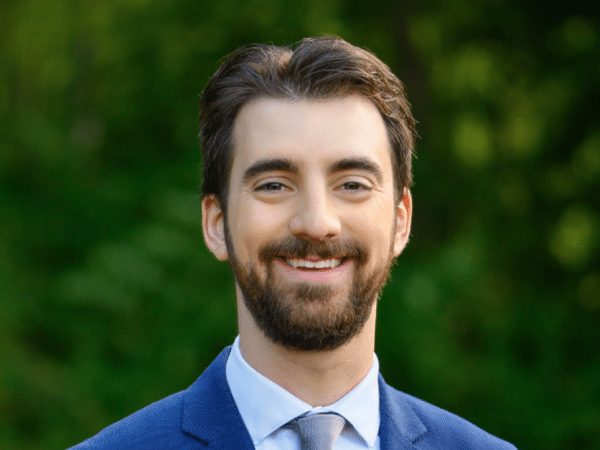
Paul Stephan
PAUL STEPHAN:
I wholeheartedly agree that the Board needs to be a collaborative partner to the Superintendent. As reported in the Village Green when I announced my candidacy in July, “If elected, I plan to prioritize relationships and governance on the Board.” We have a tremendous opportunity this year to establish a productive partnership with our new Superintendent. I am the only candidate not running on a slate, which means that if elected, I pledge to collaborate not just with my “side,” but with every Board member.
A Board member’s role is centered around two key responsibilities: ensuring stable and effective leadership by hiring and supporting the Superintendent; and setting clear, measurable goals that prioritize student outcomes. These responsibilities give the Board the ability to drive progress and accountability, and they must be executed through strong relationships with the administration. The Board has limited direct power; it cannot run the day-to-day operations of the District. What it can do is support and empower the Superintendent to lead effectively while ensuring that District goals align with improving outcomes for students.
In my day job as an environmental lawyer, I work on high-stakes cases against some of the world’s most powerful companies. I must find ways to collaborate with my adversaries to get results for my clients. The approach I use as an attorney—of listening, patience, and humility—is the same approach Board members need to have to build productive relationships with the Superintendent and other administrators. And just as an attorney must keep the focus on their clients, a Board member must keep the focus on students.
This District has seen significant turnover recently, particularly in District leadership. The result has been a depletion of institutional knowledge and difficulty in building consistent practices. For example, staffing shortages in Special Services have created frustration for parents and hindered our ability to provide consistent support for students with special needs. On top of all this, our reputation has discouraged talented people from wanting to work here. One of the most important actions the Superintendent can take is to attract and retain talented leaders and educators, and Mr. Bing has already started to do that. I’m encouraged that the Department of Special Services is now fully staffed, and I’m hopeful that other roles will be filled soon. The Board can support this by working to provide necessary resources and creating an environment where educators and leaders feel valued and heard.
Ultimately, the Board’s role is not to dictate day-to-day operations, but to ensure that the Superintendent and administration have what they need and that their work leads to improved academic and socio-emotional outcomes for all students. That is why, if elected, I will prioritize building the productive relationships necessary for our District to succeed.
______
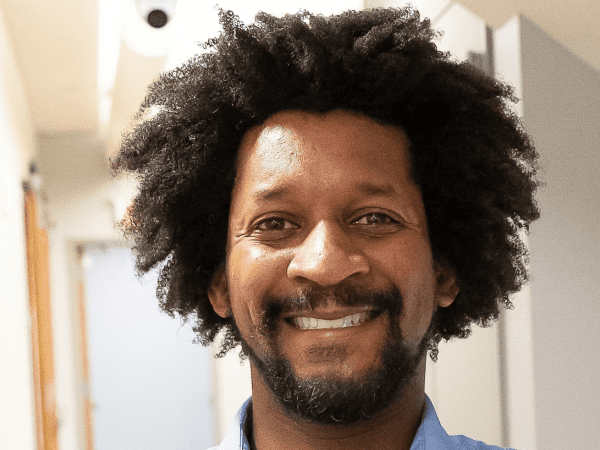
Qawi Telesford
QAWI TELESFORD:
The role of a board member is to provide oversight and set policy, regardless of administrative turnover. It is essential for board members to respect the boundaries of their role, recognizing that the superintendent is their only employee. When the board oversteps, whether by micromanaging the superintendent, involving itself in personnel decisions, or interfering in the daily operations of the district, it leads to instability that has far-reaching consequences.
A clear example of this overreach and instability was the arrest of a principal in our district. This incident created a cascading effect that disrupted the high school. It also placed a strain on the district because administrators were pulled from their essential roles to fill a leadership gap. The consequences of that destabilizing event is still felt by the CHS community today. These actions have also made our district a less desirable place to work. But it does not have to be this way.
This year, I have committed to ensuring the board functions as a collaborative partner with district administration. We achieve this by aligning our board goals with district goals and maintaining our focus on improving student outcomes, not getting involved in district operations. The board will rely on data and progress reports to guide decisions, focusing on how we can support the superintendent in addressing challenges, rather than imposing our personal opinions or demands. By maintaining these boundaries, we can foster a healthy, stable relationship with the administration and improve outcomes for students.
To improve student outcomes, the Board should focus on the whole student and not singular areas. A more holistic approach should focus on academic success, socio-emotional learning, a culturally responsive curriculum, and inclusive school culture. Key areas include strengthening Intervention & Referral Service (I&RS) to target support and enrichment for students; expanding socio-emotional learning (SEL) programs and ensuring mental health services are available in all schools; creating a culturally responsive curriculum and evaluating the effectiveness of our professional development in these areas; and creating a more inclusive school culture that includes greater support for affinity spaces and peer mentoring programs.
Focusing on these areas and maintaining a healthy governance relationship are essential for the board and superintendent to create stability in our school district and provide students with the support and opportunity to succeed.
______
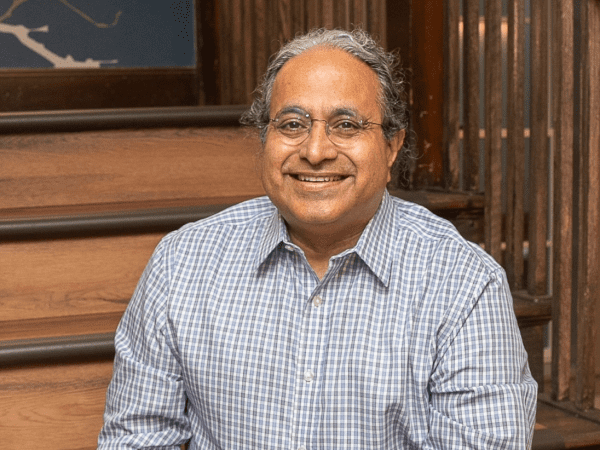
Arun Vadlamani
ARUN VADLAMANI:
The Board’s role has not changed; it is a governance body, not a governing body. The Board has just one employee, the Superintendent. The Board should focus on policy writing and not on operations. Of course, the Board should demand from the Superintendent all the reports it needs to oversee the district.
It is evident that the actions of the board led to instability among the administrators. Administrators were fired without considering its cascading effect on the district. It is easy to forget that administrators are human and feel unsupported and insecure when the Board goes beyond its traditional role and gets involved in the personnel decisions of those administrators. They also worry that an unintentional mistake or a false step will get them fired.
As a friend said, “You cannot fire your way to Excellence.”
Many administration candidates who work for the Superintendent have probably dropped out of the running after these destabilizing events. I am sure many candidates steer clear of our district, which is apparent when we compare the vacancy reports against those of our neighboring districts.
A Board Member should ensure that our district is run well–not try to run the district. Board members running the district just runs the district into the ground. The Board must partner with the superintendent and make meaningful changes to the current policy to drive the administration to improve student outcomes. It should look at a “student as a whole” and ensure that the district meets our children’s academic, as the superintendent’s new initiative to look at students on a spectrum of abilities. A student can be good at math but need intervention in ELA. Neurodivergent students who need more support and G&T students are also on this scale. This focus will improve the outcomes for that student and the student body.
_____
Jeff Bennett
JEFF BENNETT:
One difference between a BOE campaign and the campaign for any other office is that for other offices, including town councils, voters have a clear understanding of what that office does, whereas for a board of education, there’s a lot of uncertainty even among high-information voters. Another difference between a BOE and every other elected institution is that other institutions seek to use all the powers they have legally available to them, whereas a BOE voluntarily cedes much of its legal power to a school superintendent, and believes important areas of education like curriculum and pedagogy are primarily the superintendent’s prerogative, not its own.
The relationship between a BOE and a superintendent is complex. The superintendent is simultaneously an employee of the board of ed, an ex officio member of the board of ed, and the board’s de facto leader. The superintendent, as the chief executive of the district and person with the most knowledge over the district’s myriad programs, has enormous authority in saying what’s possible and what’s impossible, what’s needed and what’s superfluous.
However, superintendents are not infallible. They can misjudge a district’s culture and they can get caught up in education fads that have little scientific basis for them. If, as a board member, I felt that the the administration is educationally wrong about something, I would say so, like when I protested in my first board term against our reliance on the Lucy Calkins Readers and Writers Workshop, which marginalized phonics. If there were the opportunity to vote against a policy I thought was educationally harmful, I would do so. However, the policy governance protocol is that board members defer to the superintendent in certain administrative and semi-administrative realms when his or her policies seem reasonable.
Based on my first board term, I think it is possible to have a “strong-strong” superintendent-board relationship. The Board can’t administer the schools, nor interfere with personnel decisions, and must respect the superintendent’s advice, but through writing the District Goals, writing policy, writing Guiding Change documents for new policy development, a Board can influence what the Administration does. Although there is the protocol of a BOE voluntarily not using all of its formal powers, board members have a lot of latitude to privately and publicly advocate for or against things. Boards also have the power of writing resolutions and working through the New Jersey School Boards Association to try to influence state policy.
Space limits prevent me from going into this role in more detail, but I think BOEs always have a major informational role by what they choose to discuss and debate in public, what presentations they commission, and how they interact with stakeholders.
There are numerous ways the Administration and SOMA BOE can improve student outcomes that operate in multiple dimensions of education. These would include fully staffing special education, having a content-rich curriculum for K-5 education, paying our teachers well and boosting their morale, ensuring that tiered supports and adequate scaffolding are available, maintaining and strengthening an attitude of (appropriately) challenging students.
______
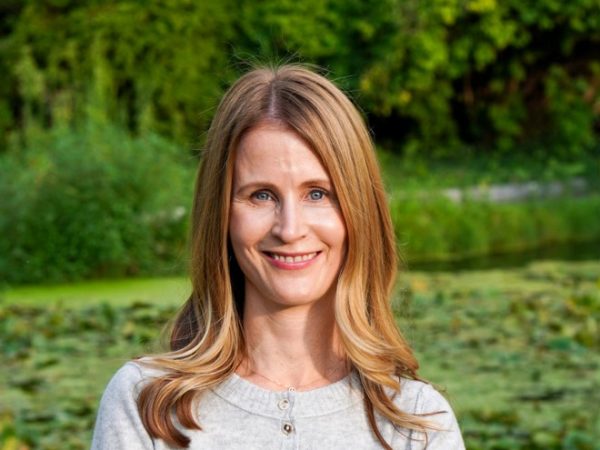
Deirdre Brown
DEIRDRE BROWN:
Ideally, the BOE and Superintendent and administration are partners working together to achieve the same district goals. The Superintendent should be the person with the most intimate knowledge of the happenings within the district. The BOE should lean into that knowledge to move forward with policy that helps support goal achievement. The BOE is also responsible for holding the Superintendent accountable for making progress toward district goals.
The climate of our BOE under its current leadership is not collaborative. We have a culture of pitting groups against each other, whether it be board members, teachers, parents, or the Superintendent and administration. I believe this culture created the environment that led to the terrible treatment of the CHS principal, Frank Sanchez. As a huge proponent of Friends of Frank, I am relieved Mr. Sanchez is now back at CHS. However, the antagonistic culture continues today as we recently saw a current BOE member post information about teacher negotiations. This only serves to pit parents against teachers, and we must stop this cycle of such unhelpful communication coming from the BOE.
Further, I have witnessed board alliances that are destructive. Instead of holding each other accountable and admitting to mistakes and the need for process improvements, I have seen members of the board stay silent in favor of maintaining an alliance.
If elected, I will work to repair our district culture. I will work to bring parties together. I will also hold myself accountable, and I will hold my fellow board members accountable. I hope they will do the same for me. We need open, honest, and transparent dialog and healthy debate to think through and achieve the best path forward for our students. Group think serves no one.
In addition to Superintendent oversight, a major responsibility of the BOE is to develop policies. The BOE doesn’t make direct decisions, but they have a significant impact on district direction through the policy they write. My work in policy evaluation, including key policy design and measurement practices, positions me to serve in this area.
The BBK platform is all about improving student outcomes by meeting student’s diverse needs, not a one-size-fits all approach. We believe the Superintendent and administration should:
- Academic excellence. All students, regardless of course level, should be taught the necessary skills and challenged academically. This growth mindset and philosophy is supported by the Equity audit.
- Re-build the special education program. The District’s recent audits should be used to guide the way for much needed improvements.
- The student achievement gap. We need to prioritize implementing the recommendations made in our Equity audit–our best roadmap for making progress.
- Reinvest in Career and Technical Education at Columbia High School. By taking advantage of grant opportunities and partnerships, we can create important post-high school career pathways for our students.
- Re-imagine and re-build guidance. We need to create a guidance department that provides greater, and more consistent, involvement of supportive counselors in students’ lives to establish trusting, encouraging relationships.
______
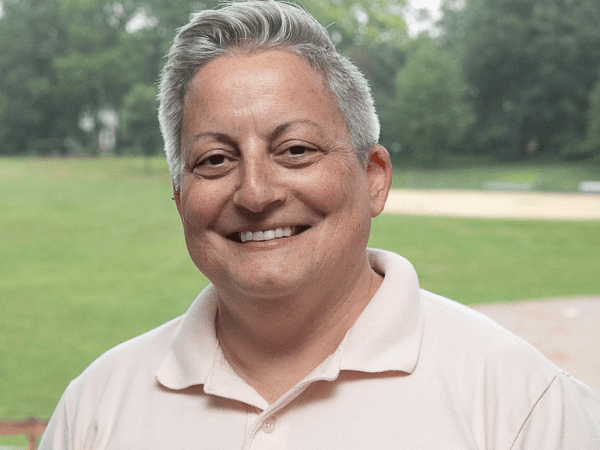
Bethany Joseph
BETHANY JOSEPH:
The Board has an incredibly important duty in hiring a superintendent, and choosing a person who has the experience and insight necessary to lead our district well. Once the hiring is done, the Board’s role is to let that person lead, while providing enough oversight and policy guardrails to ensure we are headed in the right direction.
Many times these BOE campaigns are filled with promises that are well outside the realm of what a Board member can or should do. Board members do not run the district. When Board members try to run the district, things get thrown into chaos, administrators leave, and the instability negatively impacts our kids. We need Superintendent Bing and our school leadership team to create an environment where our educators can do what they do best, teach our children. The administration can also support our students by ensuring they have an environment that is conducive to learning. We need facilities that are in good repair, efficient transportation, thoughtful and effective security and well-run operations that support learning.
Supporting our students’ social emotional health is critically important. We also need counseling support, including social workers, a school environment free from bullying and fighting, and supports like iStep and ESS for our most vulnerable students, with enough capacity for every student who qualifies for these services.
As a Board member I will work with my Board colleagues to guide the Superintendent in creating actionable plans and implementing them. We must stay focused on this work in order to fulfill our obligation to all our community’s kids.

